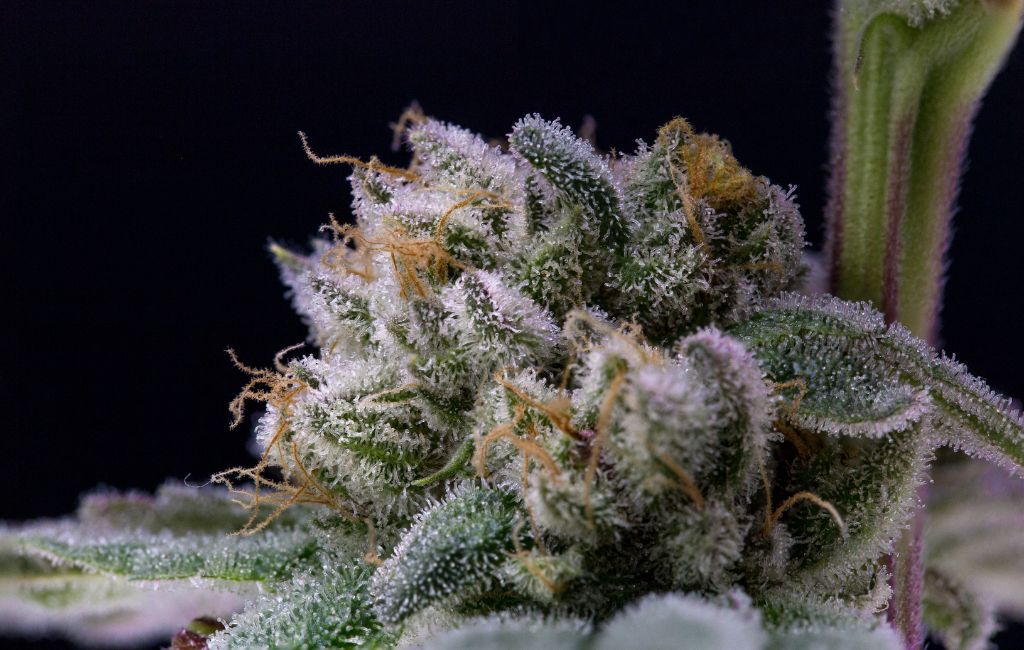THCa Flower: Nature’s Healing Essence
In recent years, the cannabis plant has gained significant attention for its potential therapeutic benefits. Among the various compounds found in cannabis, THCa (tetrahydrocannabinolic acid) has emerged as a promising candidate for natural healing. This article explores the properties, benefits, and applications of THCa flower, shedding light on its potential as a natural remedy.
Understanding THCa
THCa is a non-psychoactive cannabinoid found in raw and live cannabis plants. Unlike THC (tetrahydrocannabinol), which is known for its psychoactive effects, THCa does not produce a “high.” This makes it an attractive option for those seeking the therapeutic benefits of cannabis without the mind-altering effects.
How THCa Works
THCa interacts with the body’s endocannabinoid system (ECS), a complex network of receptors and enzymes that regulate various physiological processes. By binding to these receptors, THCa can influence functions such as pain perception, inflammation, and immune response.
Health Benefits of THCa Flower
Research and anecdotal evidence suggest that THCa flower may offer a range of health benefits. Here are some of the most notable:
- Anti-inflammatory Properties: THCa has been shown to reduce inflammation, making it a potential treatment for conditions like arthritis and inflammatory bowel disease.
- Neuroprotective Effects: Studies indicate that THCa may protect brain cells from damage, which could be beneficial for neurodegenerative diseases such as Alzheimer’s and Parkinson’s.
- Anti-emetic Benefits: THCa has been found to alleviate nausea and vomiting, particularly in patients undergoing chemotherapy.
- Pain Relief: By interacting with the ECS, THCa can help manage chronic pain conditions without the risk of addiction associated with opioids.
Case Studies and Research
Several studies have highlighted the potential of THCa as a therapeutic agent. For instance, a 2013 study published in the British Journal of Pharmacology found that THCa exhibited anti-inflammatory properties in animal models. Another study in 2017 demonstrated that THCa could reduce nausea and vomiting in rats, suggesting its potential for treating chemotherapy-induced symptoms.
Methods of Consumption
THCa flower can be consumed in various ways, each offering unique benefits:
- Raw Consumption: Consuming raw cannabis leaves or flowers in smoothies or salads preserves the THCa content, providing the benefits without psychoactive effects.
- Juicing: Juicing fresh cannabis leaves is another effective way to intake THCa. This method is popular among those seeking a concentrated dose of cannabinoids.
- Tinctures and Oils: THCa can be extracted and infused into oils or tinctures, offering a convenient and precise way to consume the compound.
Legal Status and Accessibility
The legal status of THCa varies by region. In some areas, THCa is classified similarly to THC, making it subject to the same regulations. In other regions, THCa is considered a non-psychoactive compound and is more readily available. It’s important to check local laws and regulations before purchasing or consuming THCa products.
Market Trends
The growing interest in cannabis for medicinal purposes has led to an increase in the availability of THCa products. Dispensaries and online retailers now offer a variety of THCa-rich flowers, tinctures, and edibles. This trend reflects a broader shift towards natural and holistic health solutions.
Potential Side Effects
While THCa is generally considered safe, some individuals may experience side effects. These can include:
- Dry mouth
- Dizziness
- Fatigue
It’s advisable to start with a low dose and gradually increase it to find the optimal amount for your needs. Consulting with a healthcare professional can also provide guidance on safe and effective use.
Conclusion
THCa flower represents a promising avenue for natural healing, offering a range of potential benefits without the psychoactive effects of THC. From reducing inflammation to providing neuroprotective effects, THCa has shown significant therapeutic potential. As research continues to uncover its benefits, THCa may become a staple in natural medicine cabinets worldwide.
